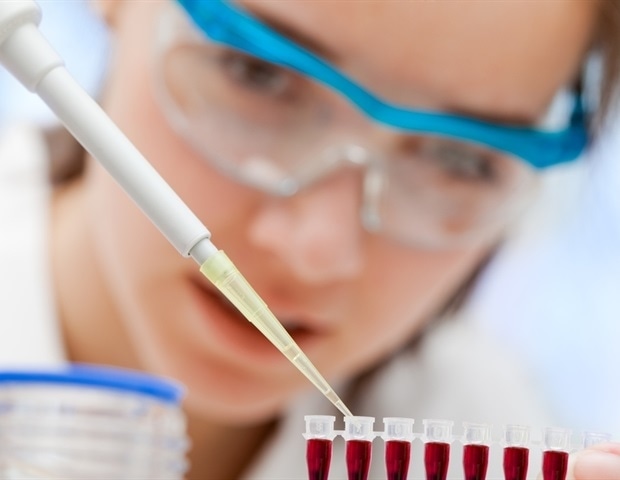Orlando Health Orlando Regional Medical Center (ORMC) is the first hospital in the world to use a new, groundbreaking blood test to evaluate patients with suspected mild traumatic brain injury (TBI) or concussions. The rapid TBI blood test provides results in as little as 15 minutes and was developed by Abbott in collaboration with the Department of Defense and is based on innovative research that Orlando Health’s Dr. Linda Papa and others helped pioneer over 20 years ago.
According to the National Institutes of Health, traumatic brain injuries from accidents or sports are one of the leading causes of death and disability in the United States. And the CDC estimates that 2.5 million people visit the emergency room each year because of a traumatic brain injury.
Nearly 25 years ago, as an emergency physician, Dr. Papa noticed that doctors had blood tests to diagnose and treat diseases of many major organs, such as the heart, liver and kidneys. But there was no blood test for the brain. Her patients inspired her to find a way to use science to mitigate the effects of TBIs, and her research and body of work reflect her commitment to helping patients with TBIs. That’s why it’s especially notable that Orlando Health, under Dr. Papa’s leadership, will be the first hospital system in the world to implement Abbott’s i-STAT TBI blood test. With this new test in hand, Orlando Health emergency physicians can now more quickly evaluate patients in those critical moments when every second counts.
Now doctors can finally do blood tests to examine your brain. This is a game changer, and we’re still in the very early stages.”
Dr. Linda Papa, Director of Clinical Research, Orlando Health
New TBI blood test delivers fast results
Abbott’s i-STAT TBI test provides results in as little as 15 minutes by testing a patient’s blood for two biomarkers that may be present after a brain injury. The test results can help rule out the need for a head CT scan and determine the best next steps for patient care. Dr. Papa was a pioneer in identifying the biomarkers used in the TBI blood test, and her more than two decades of innovative research played a critical role in test development.
“Head trauma shakes a person’s brain. Damaged brain cells release two proteins into their blood: GFAP and UCH-L1,” said Dr. Papa. “The higher the levels of these proteins, the more severe the brain injury. The faster doctors detect these brain injuries, the faster a patient can receive life-saving treatment. On the other hand, if we don’t see elevated levels of biomarkers in the blood within 24 hours of the trauma, a CT scan may not be necessary.”
The new TBI blood test is now an innovative tool in a doctor’s toolbox. Currently, CT scans are the most common way to diagnose brain lesions, but they are time-consuming, expensive, and involve radiation exposure. The TBI blood test could reduce the need for CT scans. For decades, the assessment of concussions has been the same: a physical examination of the patient to subjectively assess a concussion, and imaging to detect brain tissue damage or lesions.
“Testing TBI patients in the emergency department can sometimes be difficult,” said Dr. Chris Davlantes, senior director of Global Medical & Scientific Affairs in Abbott’s Point of Care Diagnostics division and an emergency medicine physician. “In critical moments of uncertainty, a blood test can provide objective information to quickly assess which patients can be safely sent home without imaging. We are very pleased to be working with Orlando Health, a pioneer in concussion care, to introduce this important test for traumatic brain injury – a significant advancement in the standard of care for patients.”
Orlando Health is a leader
Each month, Orlando Health ORMC’s Emergency Department sees an average of 125 patients suffering from traumatic brain injury. Orlando Health ORMC is the only Level 1 trauma center in Central Florida.
“We are incredibly proud to be the first hospital in the world to introduce this new blood test for traumatic brain injury,” said Kelly Nierstedt, senior vice president of Orlando Health and president of Orlando Health Orlando Regional Medical Center. “Dr. Papa is a visionary. Her decades of groundbreaking TBI research underscores Orlando Health’s commitment to patient care and strategic innovation. We are honored to be at the forefront of healthcare delivery from the research lab to the patient’s bedside.”
Dr. Papa is currently working on evaluating the test in children. She also remains actively involved in Orlando Health’s clinical implementation of the Abbott blood test to help adult patients with suspected traumatic brain injury.
“It was a humble beginning. I started this research by going around the emergency room asking patients to participate in our study and collecting blood samples to test for brain injury biomarkers,” said Dr. Papa. “We are grateful to all the patients and families who agreed to participate in this research because they helped make this test possible.”
Dr. Papa has investigated different aspects of the blood test in various studies and has been lead author of many studies published in journals such as JAMA Neurology, JAMA Network Open, Nature Scientific Reports, Journal of Neurotrauma, BMJ Paediatrics Open, Academic Emergency Medicine, Annals of Emergency Medicine and Journal of Trauma.

